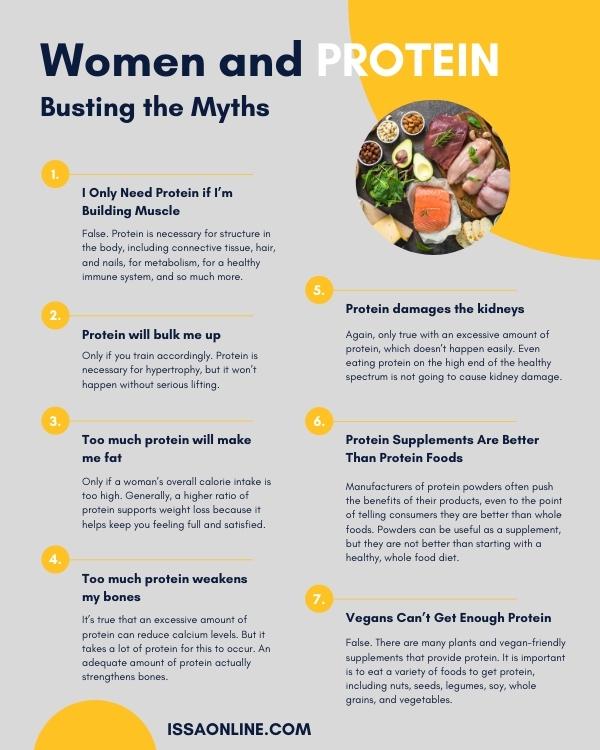C155C Chronicles
Exploring the latest trends and insights.
Lean and Mean: The Protein-Packed Path to a Healthier You
Unlock the secrets to a healthier you! Discover protein-packed tips and tricks in Lean and Mean for a fit lifestyle that works.
Top 5 Protein Sources to Boost Your Health: A Comprehensive Guide
Proteins are essential macronutrients that play a crucial role in building and repairing tissues, producing hormones, and supporting overall bodily functions. As we strive to maintain a healthy lifestyle, incorporating a variety of protein sources is vital. This guide highlights the top 5 protein sources that can help boost your health and energy levels.
- Lean Meats: Chicken, turkey, and lean cuts of beef are excellent sources of high-quality protein. They provide essential amino acids necessary for muscle repair and growth.
- Fish: Rich in omega-3 fatty acids, options like salmon and tuna not only deliver protein but also promote heart health.
- Dairy Products: Foods like Greek yogurt, cheese, and milk are not only high in protein but also fortified with calcium, supporting bone health.
- Legumes: Beans, lentils, and chickpeas are fantastic plant-based protein sources. They are also rich in fiber, which aids in digestion.
- Quinoa: This superfood is a complete protein, meaning it contains all nine essential amino acids. It's also gluten-free, making it a perfect addition to various diets.

How Much Protein Do You Really Need? Debunking Myths and Facts
When it comes to understanding how much protein you really need, a common myth is that more protein always equates to better health or improved performance. In reality, the amount of protein an individual requires can vary greatly based on factors such as age, activity level, and overall health. For instance, the Recommended Dietary Allowance (RDA) suggests that an average adult needs about 0.8 grams of protein per kilogram of body weight, which translates to roughly 56 grams for men and 46 grams for women. However, athletes or individuals engaged in intense exercise may require significantly more, sometimes up to 1.2 to 2.0 grams per kilogram depending on their specific goals and training intensity.
It's crucial to separate facts from common misconceptions regarding protein intake. One prevalent belief is that consuming excessive protein will lead to muscle gain; however, muscle development is more complex and requires a balance of nutrients alongside protein intake. Furthermore, many people worry about the implications of high protein diets on kidney health. While those with pre-existing kidney conditions should monitor their protein consumption, healthy individuals can typically process increased protein levels without adverse effects. Ultimately, the best approach is to consider your individual needs, lifestyle, and dietary preferences, ensuring you achieve a well-rounded diet that supports your health.
The Role of Protein in Weight Loss: How to Get Lean and Mean
Protein plays a crucial role in weight loss, serving as a key nutrient that can enhance your metabolism and curb your appetite. When you consume protein-rich foods, your body has to expend more energy to digest, absorb, and process these nutrients, a phenomenon known as the thermic effect of food (TEF). Additionally, protein helps to preserve lean muscle mass while you're shedding fat, which is essential for maintaining a healthy metabolic rate. Incorporating various sources of protein, such as lean meats, fish, eggs, legumes, and dairy, can empower your weight loss journey by enabling greater fat loss and promoting a toned physique.
To get lean, it’s important to strategically integrate protein into your meals. Aim for a protein intake of about 1.6 to 2.2 grams per kilogram of body weight for optimal muscle preservation and recovery. Include protein in both your breakfast and lunch to maintain energy levels throughout the day. Here’s a simple way to structure your meals for maximum effectiveness:
- Breakfast: Start your day with eggs or a protein smoothie.
- Lunch: Incorporate grilled chicken or legumes into your salad.
- Dinner: Enjoy fish or tofu with a side of vegetables.
By following these tips and prioritizing protein, you can become not only lean but also strong and healthy.